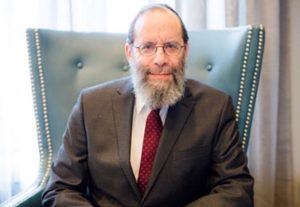To her colleagues and students, Ellen Meiksins Wood was a fiery intellectual deeply committed to her academic and political ideas.
To her half-brother, Peter Meiksins, Ellen was all that, but also the passionate sister 10 years his senior, who, throughout his childhood, would periodically visit him, his parents and his brother in New York and have them in stitches with her impressions of comedians, or spend hours locked in philosophical debate with their father.
“That was the character of our family in general, to have spirited arguments about all kinds of issues. Ellen was very much of that persuasion,” Meiksins, now a professor of sociology at Cleveland State University, said.
Meiksins Wood, an eminent political theorist and social historian who was among the cohort of scholars that founded York University’s graduate program in social and political thought, died of cancer in Ottawa on Jan. 14, at age 73.
READ: CONSTANCE GLUBE WAS CANADA’S FIRST FEMALE PROVINCIAL CHIEF JUSTICE
A professor of political science at York from the late 1960s until her retirement in 1996, Meiksins Wood was, Peter said, a self-described “non-dogmatic Marxist” who argued fiercely that great political theories are shaped by specific historical conditions, and believed social and political theory must be studied in historical context.
She met her first husband and fellow Marxist scholar, Neal Wood, when he was a young professor and she a graduate student at the University of California. The two were ultimately offered faculty positions at York, and moved to Toronto in 1967, where they co-taught a seminar examining political theory through a social historical lens that became “renowned” among students, Meiksins Wood’s former student David McNally said.
“It was, like, if you hadn’t taken that seminar, you knew you were missing out on some great intellectual experience,” McNally, now a political science professor at York, said.
Meiksins Wood was born in New York in 1942 to parents Gregory and Bella, Latvian Jews who’d been heavily involved in the Jewish socialist Bundist movement before being forced to flee Latvia following Hitler’s rise to power. Gregory and Bella ended up in New York.
They were Yiddish speakers and saw themselves as Jewish in an ethnic but not a religious sense, Peter said.
“They were very much opposed to Zionism and had an uneasy relationship with Jewish organizations that were linked to Israel… though Bella was involved with Jewish refugee organizations.”
Gregory, who later became an interpreter for the United Nations, enlisted in the navy and was stationed in London during World War II.
There, Peter said, “he met my mother, and he and Bella divorced… Ellen was sent to a few boarding schools while it was being sorted out.”
Bella and Ellen relocated to Los Angeles, where Ellen earned an undergraduate degree in Slavic languages from the University of California, Berkeley, and later, a PhD in political science from the University of California, Los Angeles.
Peter said he and Ellen developed “a real brother-sister relationship” when he attended graduate school at York and spent a great deal of time at her and Neal’s home.
“She was a very intense person. If you talk to her students, they’ll tell you she was dead serious: she cared deeply about the issues she taught… and when you and she disagreed, it was an argument… if she had a student she saw potential in, she’d go to the ends of the earth for that student,” Peter said.
Ellen never, as far as he knew, observed Judaism, but was interested in the movements that grew out of Judaism in eastern Europe and elsewhere.
READ: AL GREEN LEFT REAL ESTATE, ARTISTIC AND PHILANTHROPIC LEGACY
The books Meiksins Wood wrote included Democracy Against Capitalism (1955) and The Origins of Capitalism (1999), and she emerged “a pre-eminent theorist of democracy on the intellectual left,” McNally said.
Neal died in 2003, and in 2014, Ellen married Ed Broadbent, a political scientist and former leader of the federal New Democratic Party.
Stephen Hellman, professor emeritus of political science at York, was a colleague and friend of Ellen and Neal, and remembers them as “formidable intellects” and “extremely warm, caring human beings.”
“Ellen leaves an indelible mark in terms of her intellectual contribution and as a role model for a caring mentor,” he said.






